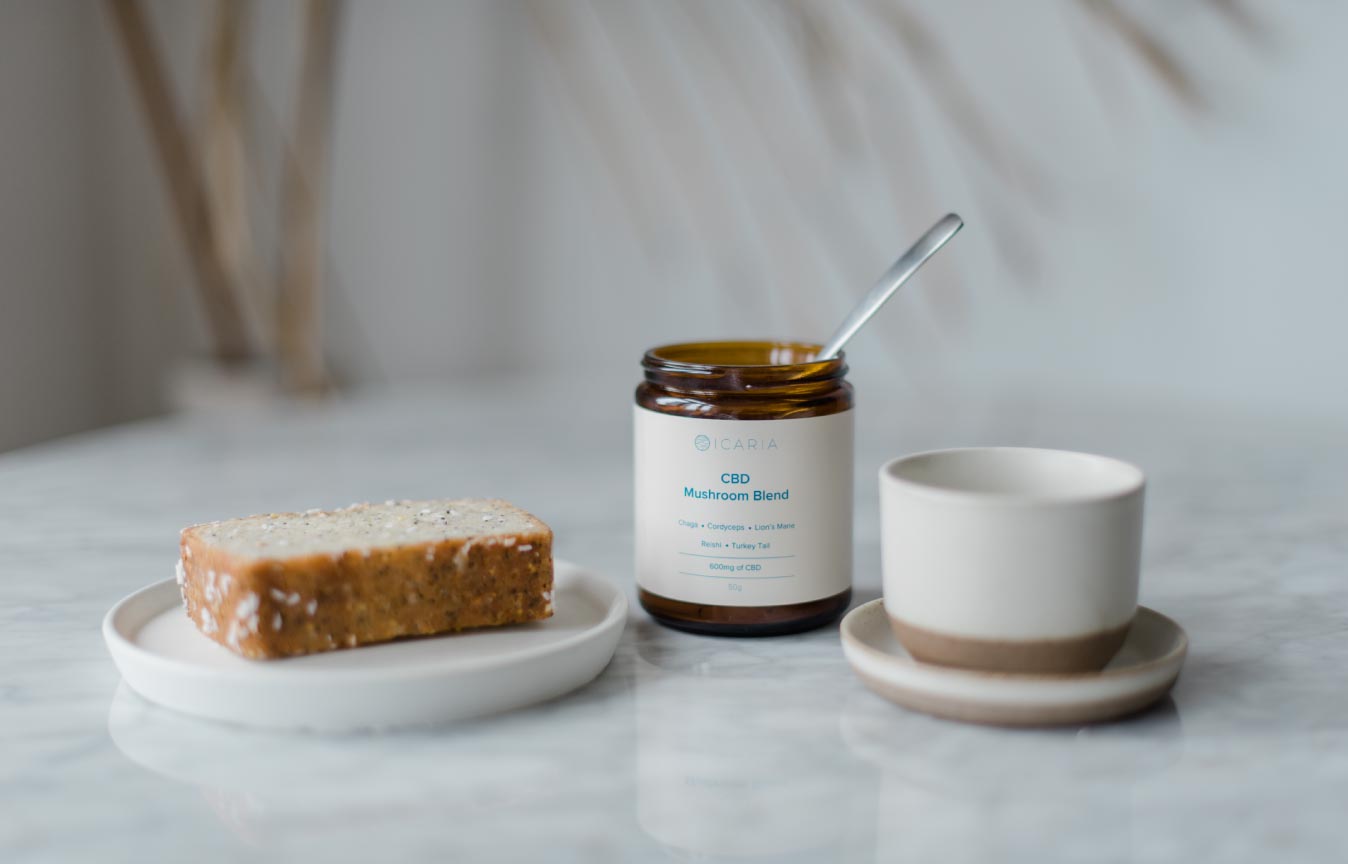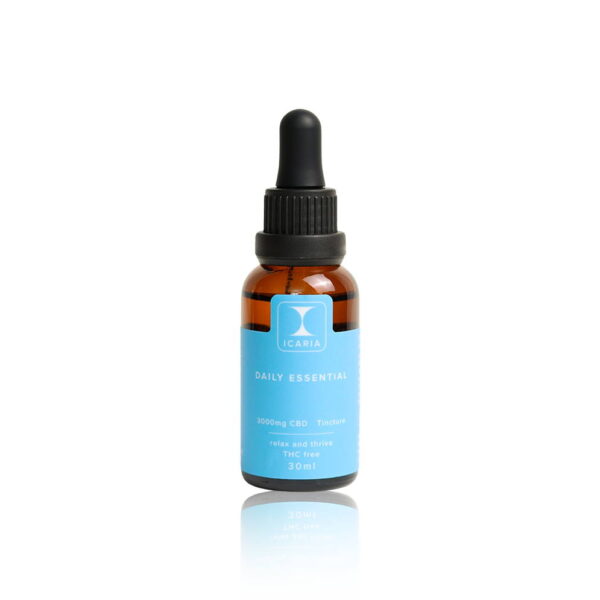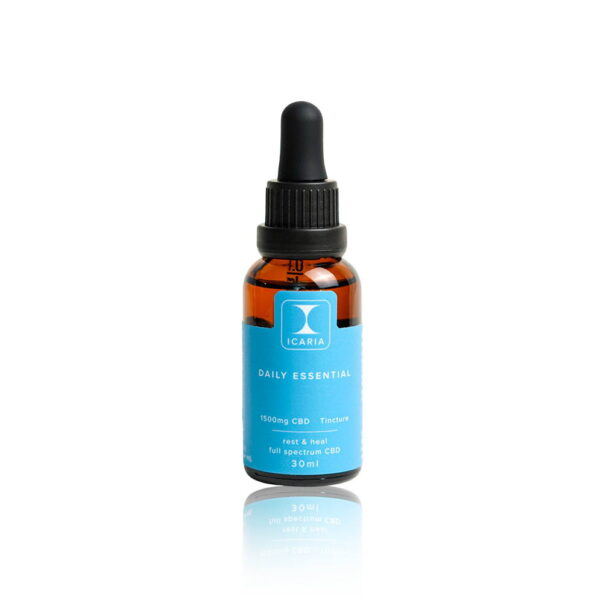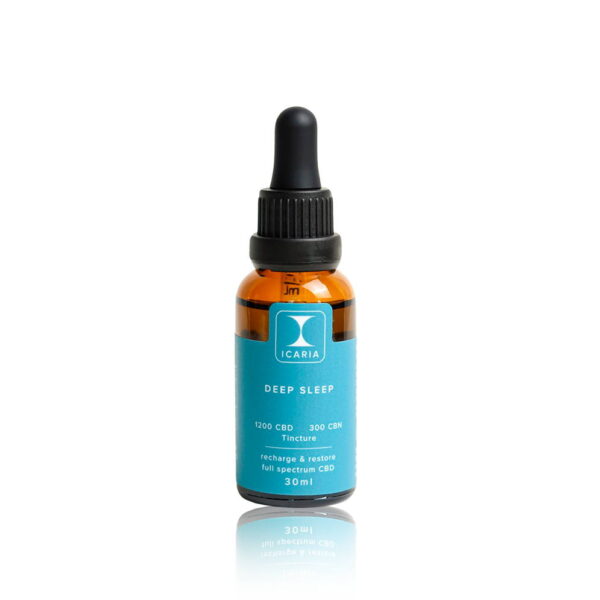What are the Health Benefits of CBD?
CBD, short for cannabidiol, is a cannabinoid that quickly gained popularity in the medical landscape. It offers the same health benefits as THC (tetrahydrocannabinol, the psychoactive cannabinoid) but without its psychoactive and hallucinogenic effects. Because it is non-psychoactive, non-addictive, and non-toxic, CBD has become a staple supplement in many homes. People use CBD not only to relieve symptoms but to maintain their health as well.
In this listicle, we’ve gathered 15 science-backed health benefits of CBD.
#1 — Relieves Pain
CBD can help alleviate different types of pain. According to studies, CBD can even help reduce chronic pain, treatment-resistant pain, and neuropathic pain or pain caused by nerve damage. It can help with headaches, migraines, and fibromyalgia.
#2 — Reduces Inflammation
Inflammation may be our body’s first line of defence against pathogens or tissue injury, but an overactive inflammatory process can worsen many health conditions. It has been implicated in chronic pain, cancer, arthritis, diabetes, obesity, and even Alzheimer’s disease.
CBD has a powerful anti-inflammatory effect. It works on the endocannabinoid system’s cannabinoid receptor type 2, the main function of which is to modulate our immune response. By modulating the body’s abnormal immune response, inflammation can be controlled.
Reduced inflammation can also help pain and symptom control.
#3 — Eases Stress and Anxiety
CBD has an anxiolytic effect that helps ease stress and anxiety. It calms the mind and helps relax the body.
One study showed that CBD decreased anxiety scores in 79.2% of patients within a month of taking it.
#4 — Stabilizes Mood and Eases Depression
CBD can also help stabilize mood and ease the symptoms of depression
According to one study done on an animal model, CBD offers a rapid and sustained effect on depression. The study also noted that CBD seemed to be a promising antidepressant drug.
#5 — Reduces Epilepsy
CBD has the ability to reduce epilepsy, says one study. Not only can it reduce the frequency of epilepsy but its severity as well. It’s effective in reducing treatment-resistant epilepsy like Dravet syndrome and Lennox-Gastaut Syndrome.
#6 — Controls Cancer
CBD is known for its anti-tumour effects. It inhibits the growth of cancer cells, and it also kills these abnormal growths. These effects help prevent the metastasis or spread of cancer cells to other parts of the body.
#7 — Decreases Acne
Acne is a skin condition worsened by inflammation.
CBD has properties that help decrease acne. One, it reduces swelling by controlling inflammation. Two, it decreases the production of sebum, the overproduction of which causes acne breakouts.
#8 — Promotes Heart Health
CBD is known to protect the heart. Not only can it help lower blood pressure, but it also dilates the blood vessels. This effect allows blood to flow more freely through the blood vessels. It also reduces the pressure exerted against the blood vessel walls.
#9 — Relieves PTSD Symptoms
Post-traumatic stress disorder (PTSD) is a type of mental health disorder characterized by extreme, uncontrollable anxiety. It’s triggered by memories of the traumatic event.
CBD, as an anxiolytic agent, can help relieve PTSD symptoms. It makes the patient feel calmer and more relaxed. It also eases their anxiety and stabilizes extreme emotions.
#10 — Improves Diabetes
CBD may be a potential agent against diabetes.
In a study done on mouse models, CBD was able to decrease diabetes risk in mice. It also reduced cytokine production, which worsens insulitis.
#11 — Protects Brain Health
CBD has neuroprotective effects. It may be able to help people dealing with neurodegenerative disorders like Alzheimer’s disease and mental health issues. It helps protect healthy brain cells against inflammation and the effects of oxidative stress.
#12 — Acts as an Antioxidant
Free radicals are normal byproducts of cellular respiration. Although they can damage healthy cells, antioxidants neutralize these free radicals and reduce their harmful effects. They lend their extra electrons to the free radicals and make them more stable.
CBD also functions as a potent antioxidant. According to one study, CBD acts like butylated hydroxytoluene. It’s a powerful antioxidant that prevents the oxidation of organic compounds and the formation of free radicals.
#13 — Controls Substance Abuse
CBD can help reduce addiction. It eases cravings and may help with controlling withdrawal symptoms. CBD also helps reduce drug-seeking behaviours.
Studies show CBD can help with cannabis, opioid, or alcohol addiction. It may even be able to help with smoking cessation and tobacco withdrawal.
#14 — Eases Schizophrenia Symptoms
CBD may be able to help patients dealing with psychotic disorders like schizophrenia.
It can help reduce psychotic symptoms, says a study. It also improved the symptoms of a schizophrenic patient unresponsive to haloperidol.
#15 — Controls Arthritis
Arthritis is a common health problem that affects the joints. It can affect one weight-bearing joint like in osteoarthritis or affect multiple joints like in rheumatoid arthritis. It can even affect bodily organs, depending on the type of arthritis.
CBD can reduce many arthritis symptoms. It eases joint pain and swelling. It allows joints to move freely and with less pain. CBD also helps improve physical function.
Bonus — CBD Helps Improve Sleep
According to a study, high-dose CBD helps improve sleep duration. However, some studies also say CBD has no effect on the sleep cycle.
We need more research on CBD and sleep to fully understand how it influences our sleep cycle. But one thing is certain though. By reducing symptoms and improving health, CBD can help give us a good night’s sleep.
Final Thoughts
CBD offers many health benefits. It can help us maintain our overall physical and mental health. It can also help us deal with many symptoms.
If you’re interested in taking CBD oil for your daily needs, we recommend seeing your primary care physician first. This is especially important if you’re:
- Pregnant
- Lactating
- Taking medications for chronic health issues
CBD can cross the placental barrier and affect the developing fetus. It can also get into the mother’s milk and be passed to the baby. Early exposure to cannabinoids, including CBD, can have a negative effect on the child.
CBD is also known to interact with other drugs. It can either amplify or dampen their effects. It can also worsen some of these drugs’ side effects.
To be safe, always consult with your doctor first.







